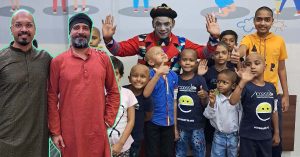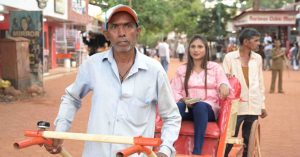‘We Know What Parents Feel’: Couple’s Loving Home Offers Love & Safety to Kids With Disabilities
Ravindra and Sujata Sugwekar were motivated by their son, who has cerebral palsy, to provide a safe haven for other children with disabilities. They run Sangopita, a shelter home, in Thane, to help them flourish.
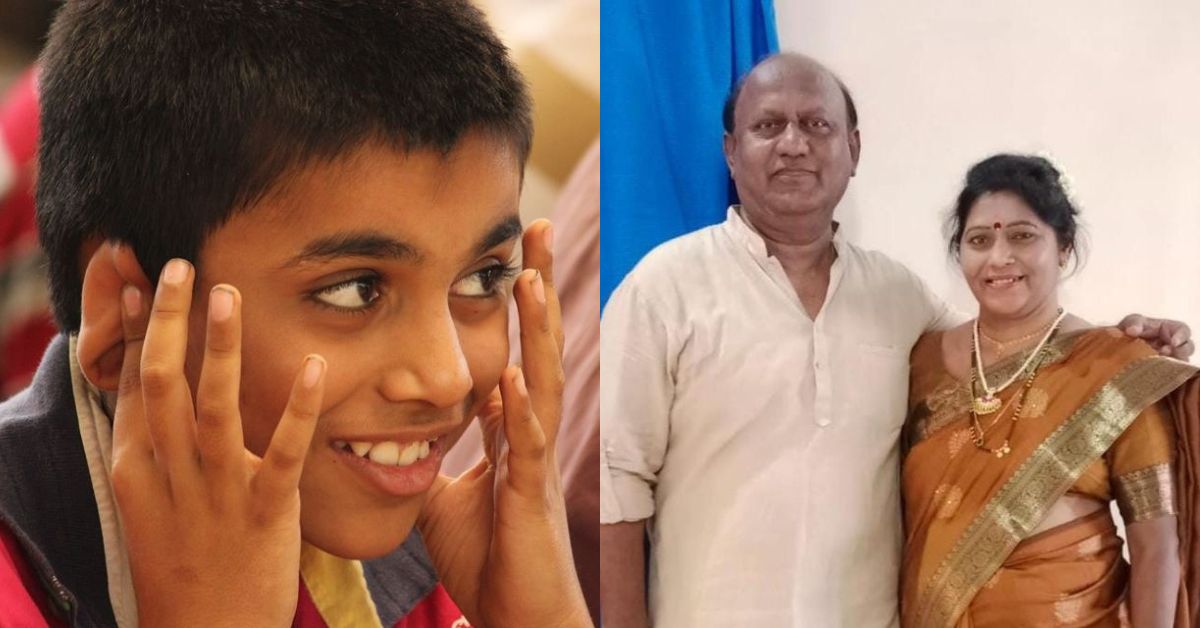
The Sugwekars, a couple based in Thane, believe that their son Akshay was born to make them realise their purpose in life — to serve other children with disabilities like him. That’s exactly what Sujata and Ravindra Sugwekar have been doing for the past two decades through their shelter home, ‘Sangopita’.
The story of these two extraordinary individuals begins in a way in 1997 in a Badlapur hospital. Pregnant with twins, Sujata went into labour in just 6.5 months. They unfortunately lost one baby at birth, while the other, Akshay, was fighting for his life. Since they needed a hospital with an NICU (Neonatal Intensive Care Unit) and good paediatric services, they moved him to KEM hospital in Parel, where he was kept in an incubator for a month.
Akshay was diagnosed with cerebral palsy, a neurological condition that affects movement and muscle coordination. He had to be taken for physiotherapy daily since then. As Ravindra was working in a bank, Sujata took on this responsibility. She would carry her month-old baby — who hardly weighed a kilo — from Badlapur to Parel everyday for therapy, in hopes of providing him with a chance to have a better life.
This journey of the mother and son continued for the first seven years of his life. But these daily train rides while lifting a young boy were taxing for Sujata, who is 61 today. She knew that there was a better way; there had to be a better way to help her son.
‘We found our calling’
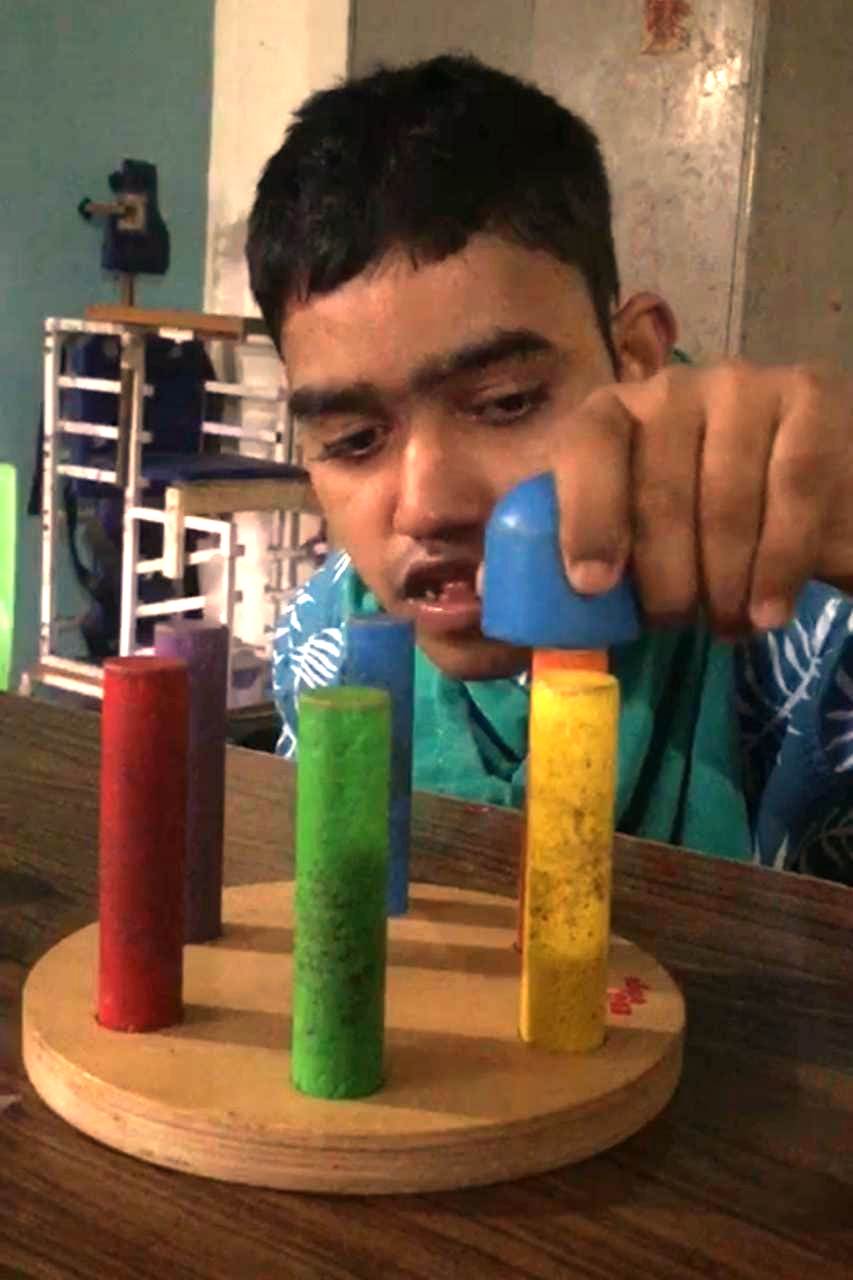
Speaking to The Better India, Sujata recalls the initial few years. While she had to take Akshay to KEM for the first 2.5 years for therapy, she later enrolled him at Spastics Society, Bandra, as local schools refused to admit him.
“So I would leave home at 7 am, reach Spastics at 9 am for his schooling. After that, I would take him to Haji Ali to a place that offered physiotherapy and speech and occupational therapy under one roof which got over by 4:30 pm. I would reach home by 6 pm. This was my routine six days a week,” explains Sujata.
Since Akshay can’t walk, she had to lift him. Travelling in Mumbai’s fast and unforgiving local trains at peak times with a child is no mean feat. Over the years, this led to back pain and other health problems for Sujata. She saw at the therapy centre that she was not alone.
“There were many parents from underprivileged backgrounds who brought their children to therapy. Many had to discontinue as they couldn’t afford it and the travel was too much,” she adds.
Sujata realised that if they had a centre which provided therapy, education and healthcare under one roof, it would solve all their problems. But there was nothing like that in Badlapur, in fact, nothing by a long shot within Thane district itself, she realised.
The couple then decided to take matters into their own hands. After all, who would understand what a child like theirs would need better than them? They did a survey in Badlapur in the early 2000s and found that there were 189 children with disabilities. They gathered their parents and asked their problems too.
“Most parents found it difficult to handle their children at home, as most homes are small. Our children need an open space to walk around and explore. So I took my savings, got some funds from other employees at my bank and bought a one-acre land near Badlapur,” says Ravindra.
They built Sangopita, a shelter home for disabled children on this land in 2003. Derived from the Sanskrit word Sangopan which means upbringing, the home offers a holistic upbringing for their beneficiaries.
The home was started with two children in 2003. As parents saw the facilities and care offered at the facility, it grew and has 62 children and 34 staff members today. They have special educators, occupational therapists, speech therapists, along with vocational training, physiotherapy, round the clock care, a mini-hospital, a doctor, a psychiatrist, a nurse and an ambulance.
With access to vast open areas, their residents participate in games, yoga and other activities with gusto.
“See, many parents don’t have the resources to handle such children, often abandoning them. We are providing an avenue for such children to really flourish and do their best. Parents, too, can be satisfied that their children are doing well,” adds Ravindra.
The 62-year-old says that the initial few years of raising Akshay was challenging. He felt depressed, he admits, thinking about what would happen to him in the future.
“Who will take care of him after us? This question plagues the mind of every parent of a disabled child. We have built this as a solution to that. I felt positive after building Sangopita. Akshay is also doing much better and has developed well in these surroundings,” he adds.
Giving them wings to fly
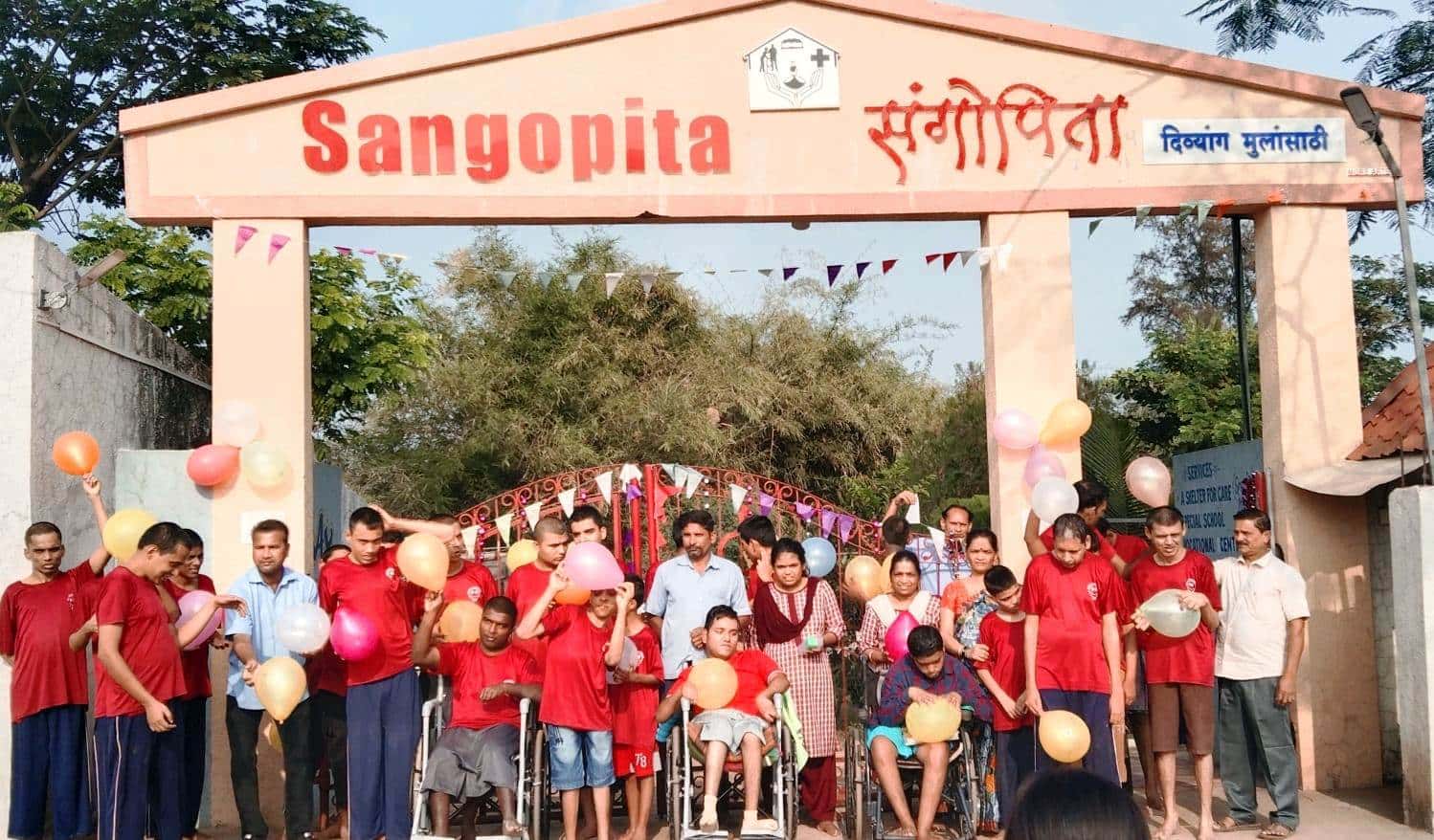
While the children seem to have found their happy place, their parents describe Sangopita as a nurturing and thriving playground as well.
Raj (16) has autism and is hyperactive, according to his mother, Swapna. A single mother who stays with her aged parents, she found it difficult to look after him. Her parents weren’t equipped to deal with him when she went to work either. Raj was susceptible to getting fits as well. She found out about Sangopita 6 years back and decided to enrol her son there.
She says that he’s doing much better and is happier there ever since.
But what about her, a mother who is staying away from her child? “That’s my fate,” she says sadly.
After the death of their parents, Sangeeta found it tough to manage her brother Rajiv Rao, 34, who has a mental disability, when she went to work. He was brought to Sangopita in 2009 and his progress has been very good since then, shares Sangeeta.
“He is very clever. When my father was alive, we had to keep a watch on Rajiv all the time as he would often drink alcohol or find some tobacco. With Sangopita, he has multiple avenues to spend his energy the right way. He makes agarbattis (incense sticks), paints and diyas (earthen lamps) there and is doing very well,” she says.
It is this progress in children that the Sugwekars strive so hard for. Ravindra quit his job a few years ago and the couple is engaged full-time in this endeavour.
“We want them to have an enjoyable life and fulfil their needs. We keep them active with sports, music, arts and craft. Many of the admittees have stopped their sleeping pills,” adds Ravindra.
They encourage the people in their shelters to make products like diyas, cards on occasions like Diwali and sell it to patrons to provide some income for the children.
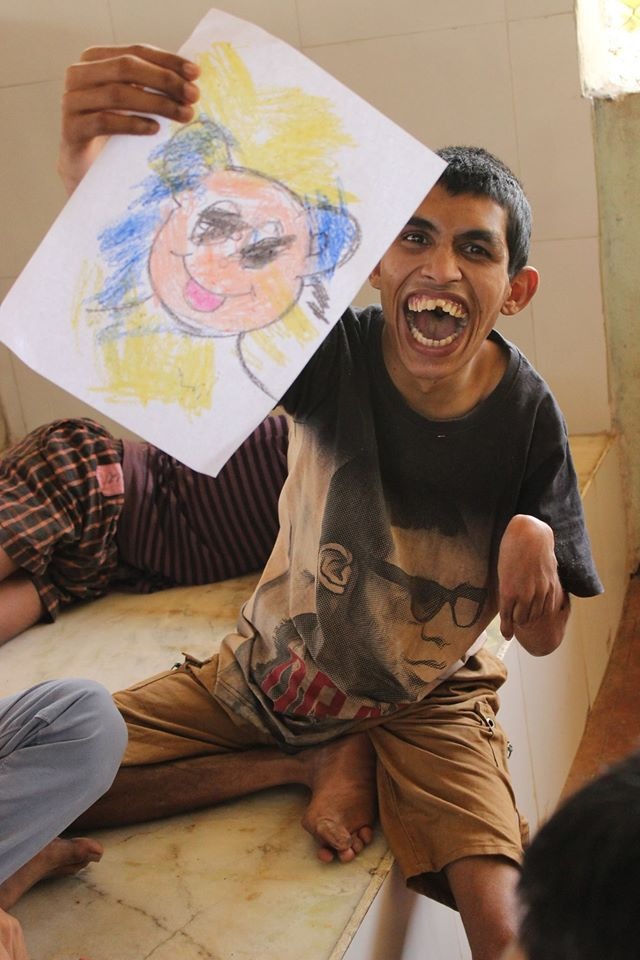
With the shelter offering home to people from 15-50 years of age who are either autistic, have learning disabilities or cerebral palsy, it costs the couple Rs 19,000 per person per month to run the facility and pay their staff.
However, they charge only what the parents or guardians of these patients can afford. Many pay only Rs 2,000 per month, say the couple. They run 30 percent on fees and 70 percent on donations and have children from Mumbai, Pune, Jalgaon, and even Jharkhand. The shelter home also houses several orphans.
But the couple isn’t bogged down by finances. They want to give people a chance to live their best life. “We want these children to become independent by the time they are 18. At the same time, we are letting their parents live their lives. We hope that we can help more people,” says Sujata.
“We know the apprehensions, hopes, dreams and aspirations of parents of a child with disabilities. We will help your children fly,” adds Ravindra.
They are in urgent need of funds. If you wish to donate, here are their account details –
Account Transfer:
Bank: Punjab National Bank
Account no: 1955000100007181
IFSC: PUNB0609800 (Ambernath Branch)
Donate via UPI:
Number: +91-9867845469 If you found our stories insightful, informative, or even just enjoyable, we invite you to consider making a voluntary payment to support the work we do at The Better India. Your contribution helps us continue producing quality content that educates, inspires, and drives positive change. Choose one of the payment options below for your contribution- By paying for the stories you value, you directly contribute to sustaining our efforts focused on making a difference in the world. Together, let’s ensure that impactful stories continue to be told and shared, enriching lives and communities alike. Thank you for your support. Here are some frequently asked questions you might find helpful to know why you are contributing?

UPI ID: 9867845469@okbizaxis
Edited by Padmashree Pande
This story made me
- 97
- 121
- 89
- 167




